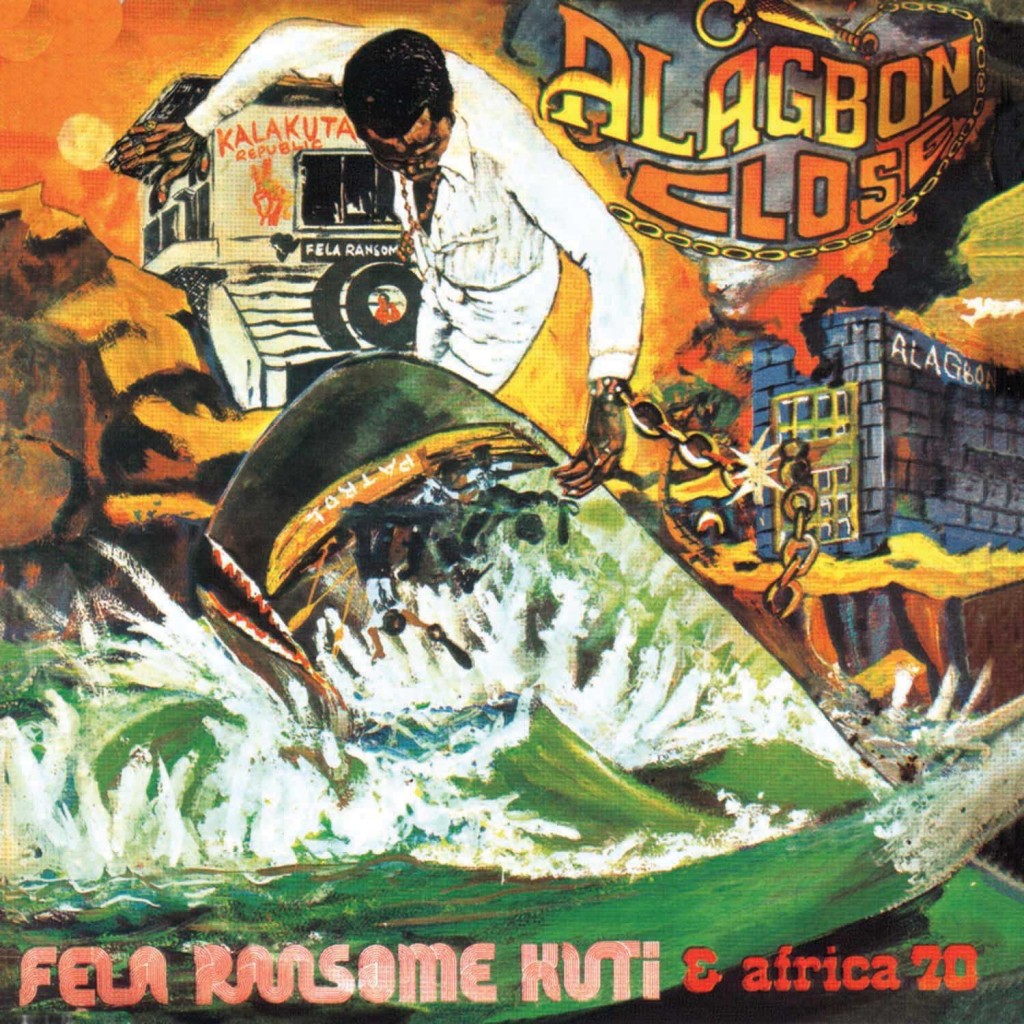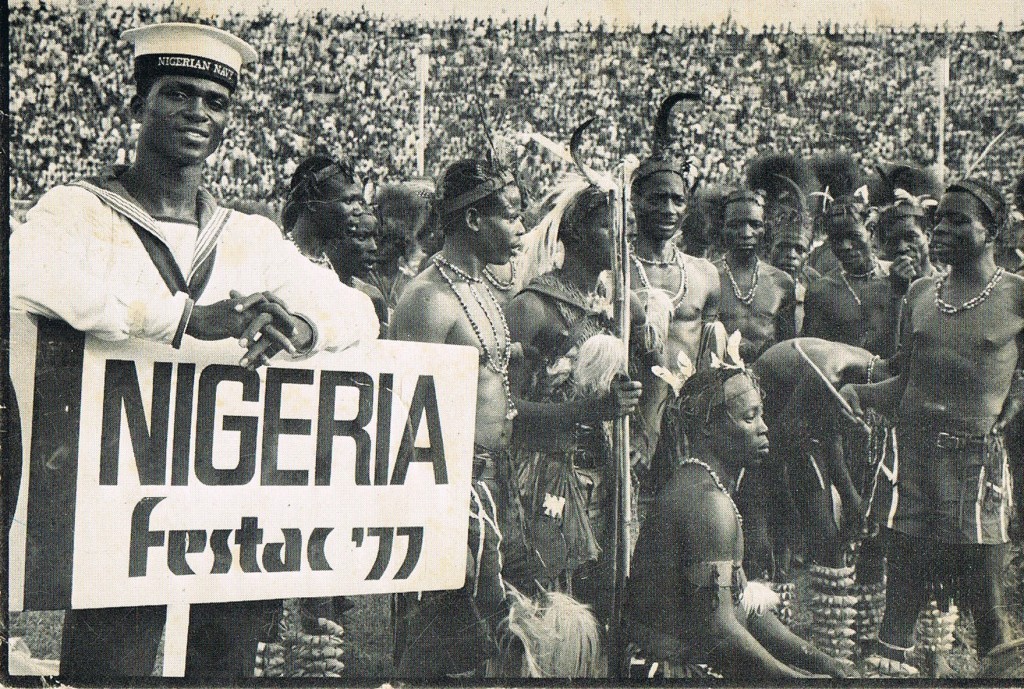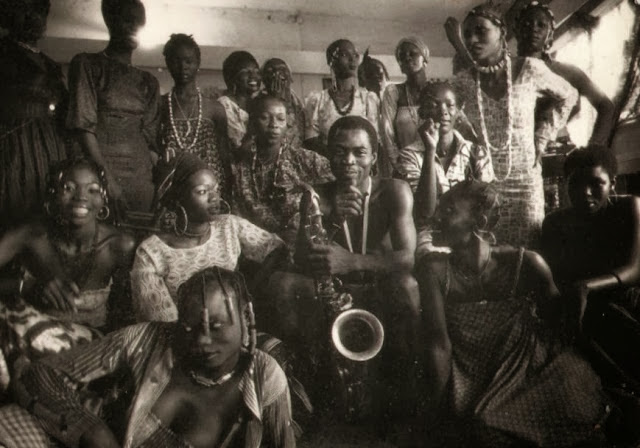On Thursday, August 2, 2018, The world remembers a legend who shook the music industry and fought for the rights of Nigerians and Africans
Fela was known as a legendary musician, a composer, a pioneer of Afrobeat music, a human rights activist and a multi-instrumentalist.
The king of Afrobeat has been called many names such as a mystic, a Panafricanist, a superstar and a legend.
It was no surprise that Fela who was born on October 15, 1938, took up the mantle to fight for the rights of people, his mother Funmilayo Ransome-Kuti was an activist who fought for the rights of women.
Fela Anikulapo-Kuti is a legend .

Today marks the 21st death anniversary of the music legend who created Afrobeat from Jazz, Funk and Nigeria's highlife music.
 Fela Anikulapo Kuti is a Nigerian legend that every Nigerian knows his name. He is also known by many across the globe.
Fela Anikulapo Kuti is a Nigerian legend that every Nigerian knows his name. He is also known by many across the globe. 
19 facts about Him:
Did you know that “Mr Who-Are-You?” and “Na Fight O” were the first in a series of narratives in which the Abami Eda used his personal experiences as “resources” for explorations of topics of wider interest?
If you were asked which was the first album cover Ghariokwu Lemi designed for Fela and you said Unnecessary Begging, you are absolutely wrong.
Are you sure?
Of course we are. It was Alagbon Close. No need for the unnecessary debate!
You must have heard of Kalakuta Records, right? But did you know that Fela set it up after Decca recording company refused to release Sorrow, Tears, and Blood? The album became the label’s debut release.
This next one sounds unbelievable, but it’s true.
In March 1980, Fela accepted a police invitation to serve as a member of the Police Public Relations Committee.
Really?
Yeah, yeah!
Hmmmmmmmmmmmmmmmmm…
This one is not as incredulous but did you know that in June 1984, a documentary film entitled Teacher Don’t Teach Me Nonsense based on Fela’s political life was broadcast to a British audience by the BBC?
How good are you with languages? No, we are not referring to the Hausa service of the BBC. We are not talking about French or German language either but Swahili!
Did you know that “Kalakuta” is a Swahili word that means “rascal”?
Bet you never knew that. But it figures!
You probably knew that his first band was called Koola Lobitos. However, have you ever asked yourself what those words stood for?
Well, “Koola” has no apparent meaning but “Lobitos” is Spanish for “little wolves”!
It figures, too!
Let’s talk about colour this time.
Did you know that orange was his favourite colour? This one is a bit debatable because the colour red and black have also been mentioned on one or two occasions. Maybe Femi or Yeni Kuti can bail us out here!
Now to FESTAC.
It’s a common knowledge that Fela did not participate in the second World Black and African Festival of Arts and Culture – known as FESTAC – in 1977. But did you know that he put forward a nine-point programme, which outlined his conditions for participating at the event?
Let’s throw this easy one in the mix.
The “White Paper” report by the federal government on February 18, 1977, invasion of Kalakuta Republic claimed that the fire that engulfed Fela’s house started accidentally by an “exasperated and … soldier”.
a) Unidentified
b) Unrecognised
c) Undistinguished
d) Unknown
e) All of the above
A piece of cake, right? If you call them Undistinguished, though, you are on your own oooooooo!
Back to Decca recording company.
Did you know that the company signed a 12-album contract with Fela but in an attempt to strangle him financially, the Nigerian army persuaded Moshood Abiola, the largest shareholder of the company, to fire the English director, John Boot? His replacement, Mr. Orgus unilaterally cancelled the company’s contract with Fela.
Still on Decca, are you aware that Fela and his entourage took over and squatted for 78 days in the company’s headquarters in Lagos? He was forced to leave the premises as a result of his invitation to perform at the Berlin Jazz Festival.
While in Germany, did you know that the Nigerian army took the opportunity to destroy the ruins of his burnt house, where he had placed a coffin on the balcony as a sign of protest and a banner with the words boldly written: “This is the spot where justice was murdered”?
Let’s make you work under examination tension and condition. Another injustice?
Well, you must have come across the computer adaptive test GRE while trying to get a job in the bank or hoping to further your studies abroad.
Then you are no stranger to analogies which test your ability to see the relationship between two words and to recognise a similar relationship between two other words.
Now let’s try it out on Fela.
KALAKUTA: Republic, KALA-KUSA: …
a) Republic
b) Cell
c) Kitchen
d) Toilet
e) None of the above
To solve this GRE/Fela analogy, follow these five steps:
1) Figure out how the capitalised words are related.
2) Create a sentence that expresses that connection.
3) Test the choices with your sentence and eliminate the ones that don’t work.
4) If you are left with more than one answer – or no answer at all – go back and refine your sentence.
5) Choose the best answer. If none of the choices fits exactly, choose the one that works best or settle for option “E”.
So, have you been able to unravel the Kalakuta and Kala-kusa relationship? Well, without further ado, Kala-Kusa was Kalakuta’s little wooden cell in Fela’s republic.
It was a symbolic cell locked with string and if you don’t do your penance in it, you have to quit the Kalakuta altogether.
But don’t quit reading this just yet because we still have more revelations on the Abami Eda!
So, did you know that as a band, the Koola Lobitos was transformed during Fela’s harrowing tour of the United States from June 1969 to March 1970?
Oh, you are aware of that but could you ever imagine that Fela started with only one female dancer?
It’s hard to but Dele, Fela’s first dancer, danced solo for the band for many years. But all that changed in 1978, when the King of Afrobeat married 27 women in one traditional ceremony.
Twenty-seven women all at once? Actually, the ceremony began with 22 brides lining up in front of the oracle in order of seniority. Five more joined the group before the ceremony ended, suggesting either last minute jitters or uncertainty! Or both.
But did you know that when no Ifa priest in Lagos agreed to officiate at the February 20 mass wedding, Fela imported Chief Yesufu Olaleye from Ekon, Ekiti division, in Ondo state?
Sadly, though, the mass marriage lasted until 1984 when Fela emerged from a jail stint on trumped-up currency charges amid rumours that some of his wives had adopted Fela’s inclusionary sexual ideas for themselves! What a man can do a woman can…
And lastly, did you know that Fela “died” before his actual death?
On July 14, 1987, Fela was rumoured dead arising from an AIDS-related illness?
Ten years later, it was no longer a rumour!
So, let’s have what you know about the man or his music – preferably about the man – we are not privy to. Another 19 from you wouldn’t be a bad idea!















No comments:
Post a Comment